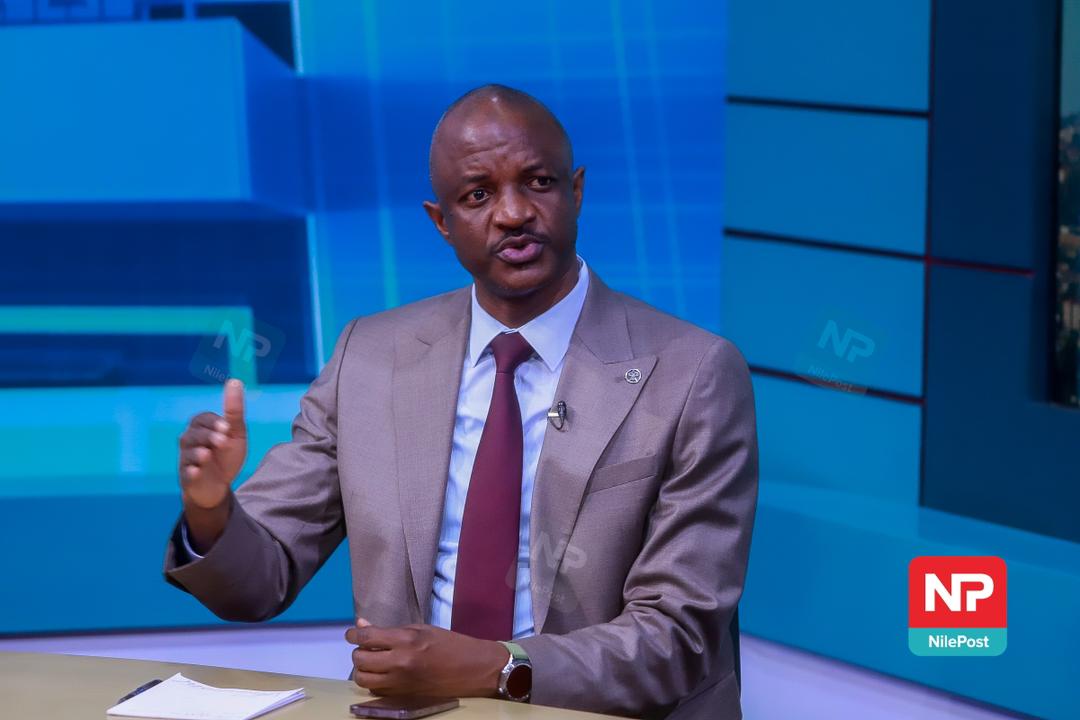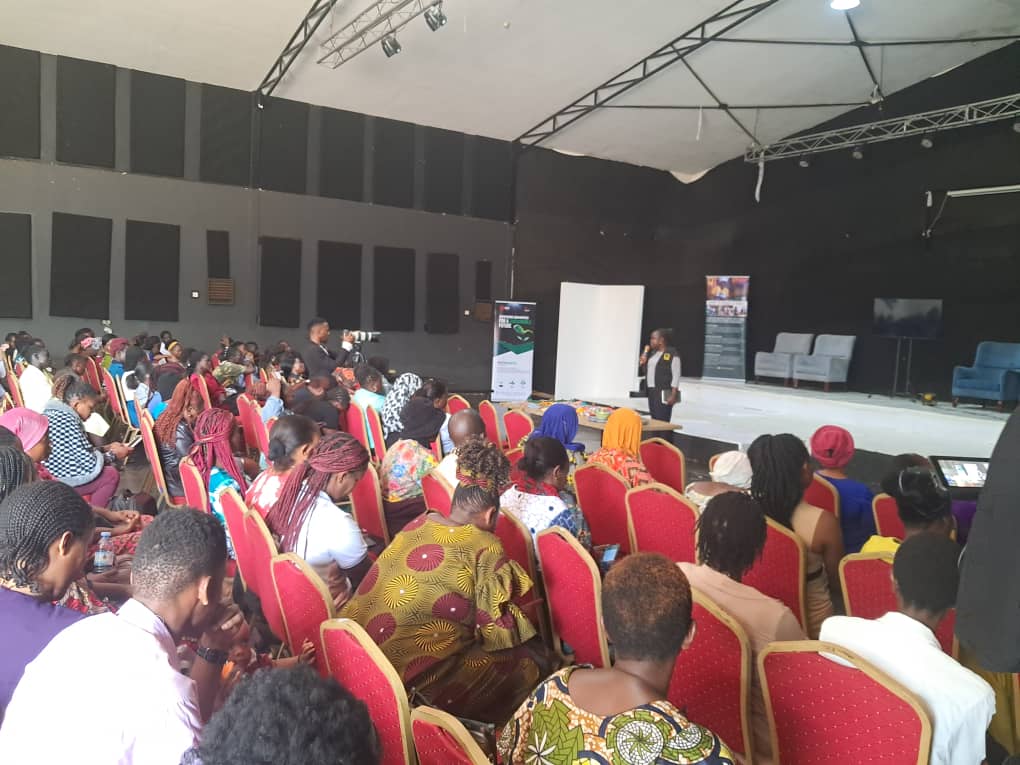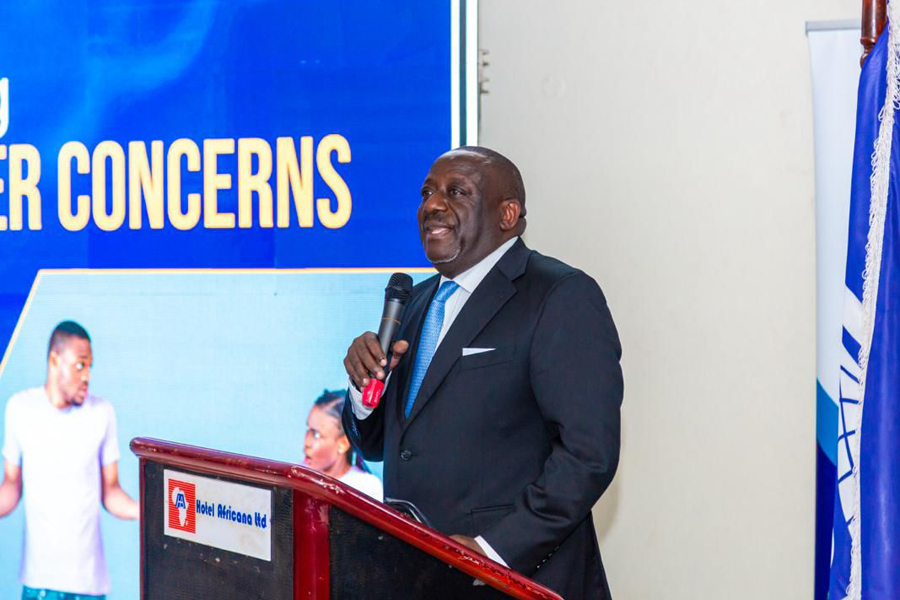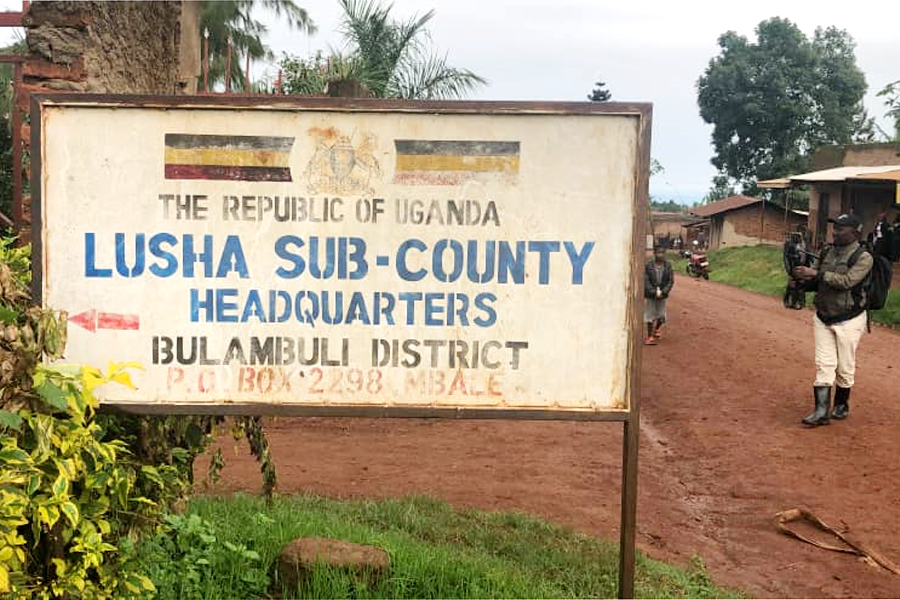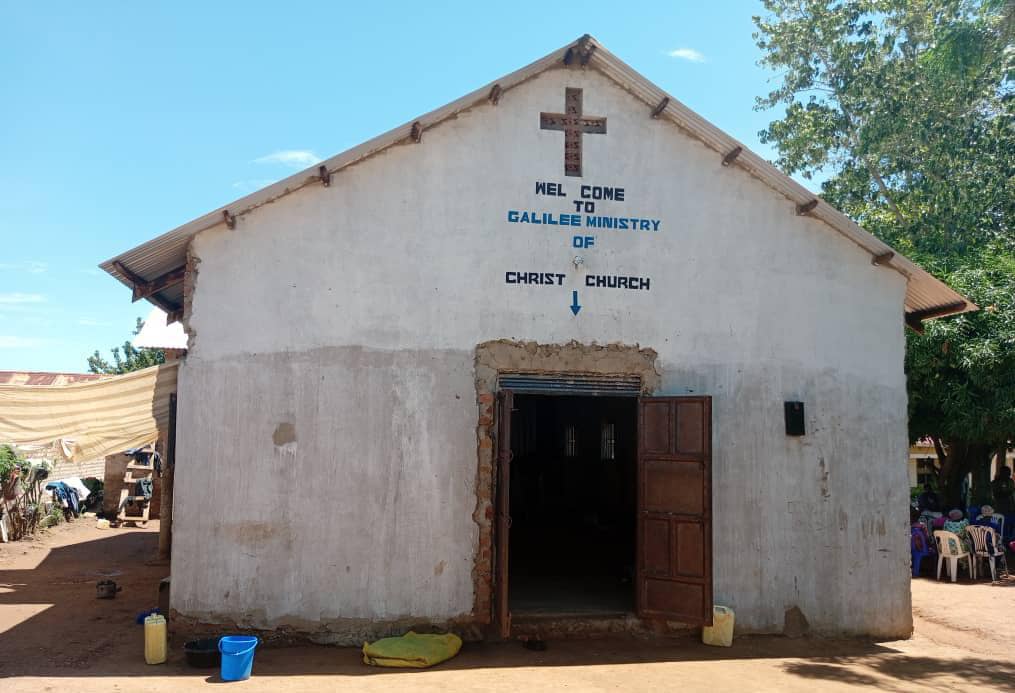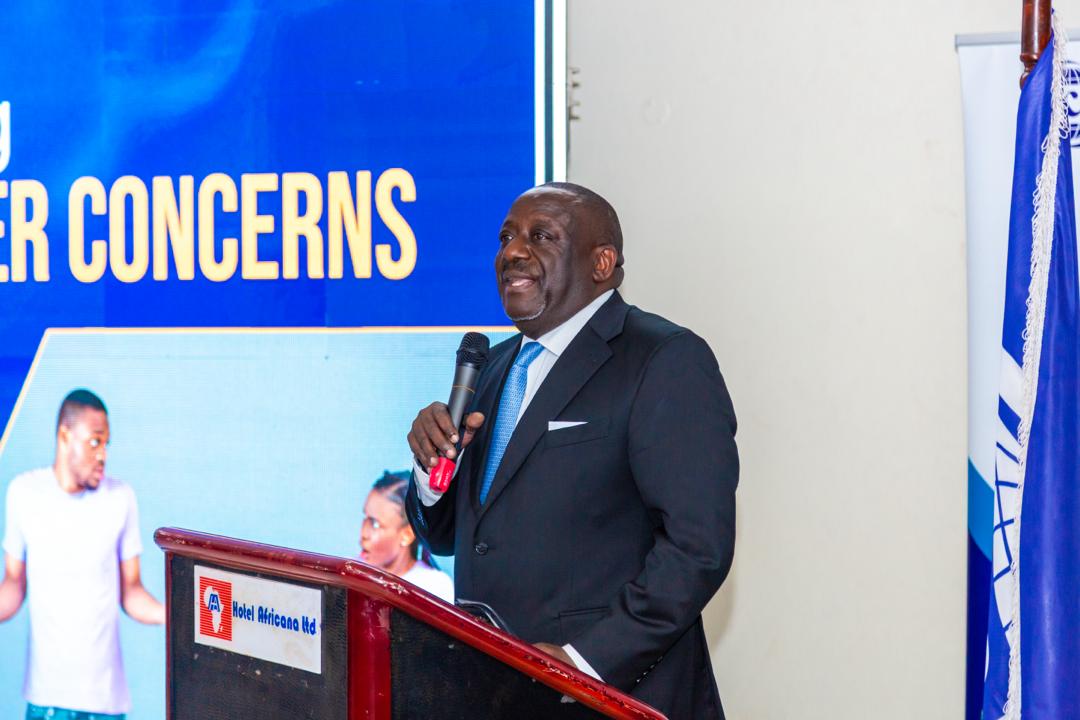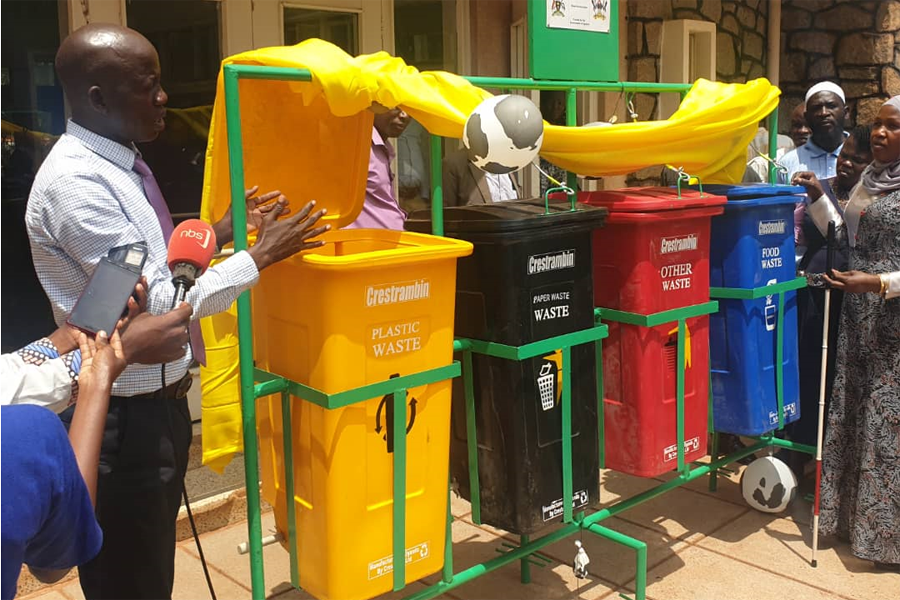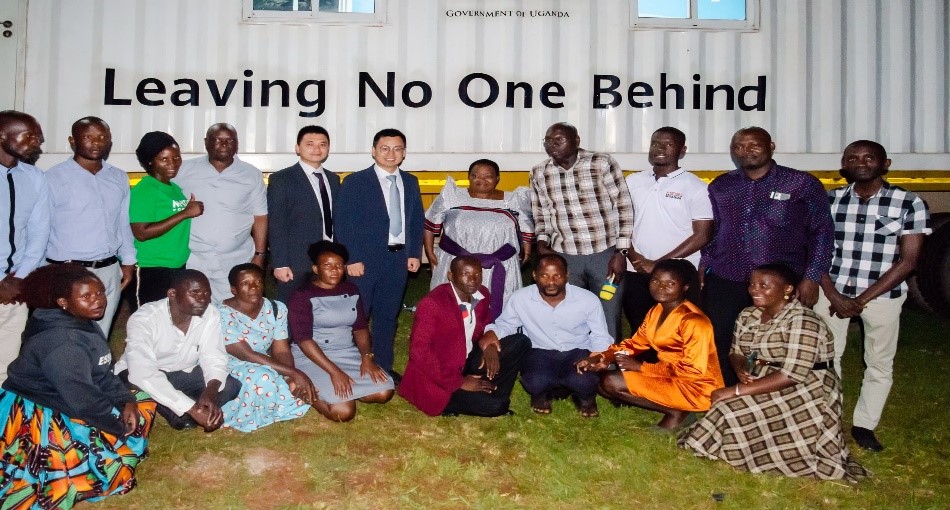Governance crisis, service neglect forcing Mbale City to its knees

SPECIAL REPORT | Mbale City Industrial Division is facing a governance crisis, marked by perceived failure in service delivery and accountability.
Then a town, Mbale in the 80s to 90s was taught in education curriculum as the cleanest in the country. It became a city and that was supposed to add aura and glitter to that famed cleanliness.
Instead it is the reverse.
Keep Reading
Solar streetlights, once envisioned to bathe the city in a reassuring glow of safety, now tower along the streets, their flickering bulbs mocking the taxpayers.
One cannot overlook the plight of Mbale's mechanical jesters: the traffic lights. These fanciful devices, once tasked with orchestrating the orderly flow of vehicles lie dormant, neglected by authorities.
In their absence, intersections become arenas of perplexity and peril, where motorists navigate a jumble of uncertainty, constantly risking accidents.
Beneath the facade of neglect lies a grave public health hazard. Neglected trench covers and clogged drainage channels, turn the city into a fertile ground for disease and pollution, silently incubating a potential epidemic.
The Central Business District (CBD) stands in stark contrast to the majority of the city. Just a few kilometres out of the bustling metropolitan hub, stretches of dusty and unlit roads have endured for generations, leaving residents yearning for the day when these roads will be paved to offer them a glimpse of the true essence of city life.
In the ongoing tale of neglect and broken promises, Badiru Mukasa, Chairperson of the Mbale City Abattoir, has voiced dissent against the deplorable state of the facility. As one of the City's primary revenue streams, the abattoir's deterioration spells impending doom for its future.
Mukasa's warnings ring loud and clear, painting a grim picture of traders on the brink of abandoning the facility due to mounting losses and empty pledges. Since July 2023, promises of renovation have echoed through the halls of council authorities like empty platitudes, but action remains as elusive as a mirage in the desert.
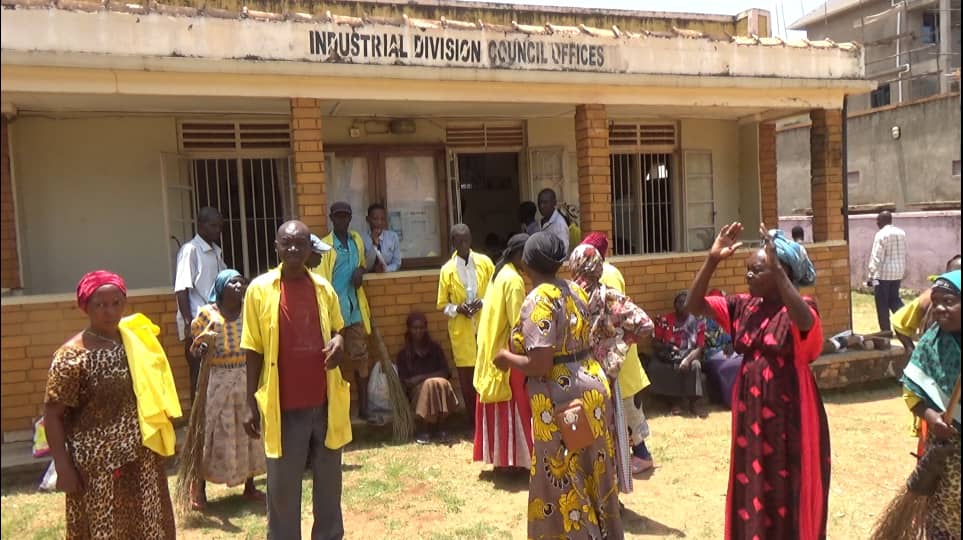
In a grim portrayal of Mbale City's financial landscape, the fate of local revenue is shrouded in mystery, marred by pilferage, diversion, undervaluation of revenue facilities and embezzlement orchestrated by a cartel of city council officials, politicians and their proxies.
Despite digital revenue collection systems the Central government aimed at bolstering revenue realization, cash transactions persist undermining accountability efforts and service delivery.
Wanzusi Wasieba, a prominent politician and the current board chairperson of the National Housing and Construction Company, has expressed profound sadness over Mbale's decline from being the third-largest town in Uganda 15 years ago to now ranking seventh. He attributes this regression to governance issues, highlighting the need for improved leadership and governance practices to address the challenges facing Mbale and propel its growth and development.
Amidst mounting frustration and disillusionment among stakeholders, the Division mayor and the town clerk juggle blame like hot potatoes, while councillors, relegated to the role of mere spectators, lament their marginalization and impotence in the face of executive overreach.
On an ordinary Tuesday morning, the 19th of March 2024, councillors assembled at the division for their scheduled meeting, eager to address the critical issues facing their constituents.
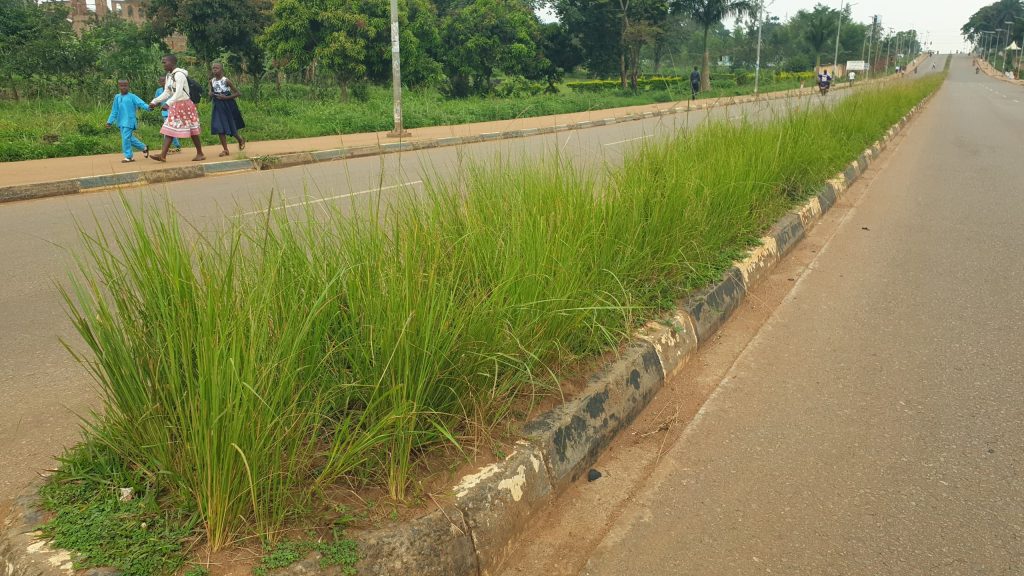 Unkempt road island in Mbale Industrial Division
Unkempt road island in Mbale Industrial Division
However, their anticipation was met with an unexpected sight: gloomy-faced street sweepers, mostly elderly individuals, adorned in tattered yellow uniforms labelled "Mbale Industrial City Division Beautification Team."
Armed with nothing but brooms and a fierce determination, the unsung heroes of Mbale City's cleanliness brigade dominated the Division's balcony and compound. Their demands were clear: justice for the wages they had gone unpaid for years.
As tales of hardship poured forth like cheap wine at a royal banquet, each sweeper recounted their struggles: from enduring long treks to work without compensation to the heartbreak of unmet needs and responsibilities.
Yet, in the face of their impassioned pleas, what did the division authorities offer in return? A paltry sum of 10,000 shillings, a gesture as hollow and meaningless as a politician's empty promises.
Amid chaos and frustration, one female sweeper wept tears of desperation. Burdened by mounting demands at home, including overdue rent and children at the brink of dismissal from school, she saw her job as the sole lifeline for securing a livelihood.
Her tears epitomized not only personal hardship but also the systemic failure to meet the basic needs of those toiling at society's lowest echelons.
In a tragicomic twist of fate, councillors, the supposed pillars of governance, found themselves in a state of despair mirroring that of the street sweepers they represented.
In this theatre of governance gone awry, the irony was palpable, the very individuals tasked with offering solutions and driving progress were themselves in dire need of assistance. With no services rendered to their electorates and the financial year drawing to a close, the sense of urgency hung heavy in the air like a dark cloud.
Moreover, despite being entitled to a modest 20% share of the local revenue; councillors too had gone without payment for an agonizing 27 months. This financial drought left them grasping at straws, unable to meet the modest expectations of their constituents. Burdened by unfulfilled promises and unrealized expectations, they were as helpless as actors on a stage without a script.
In a gripping narrative reminiscent of a political thriller, Division Mayor Muhamood Masaba aka “Bichupuli” found himself trapped in a vortex of anger and discontent within the confines of his office.
Desperately attempting to quell the rising tide of frustration among the councillors, Masaba's efforts proved futile in the face of their unwavering resolve.
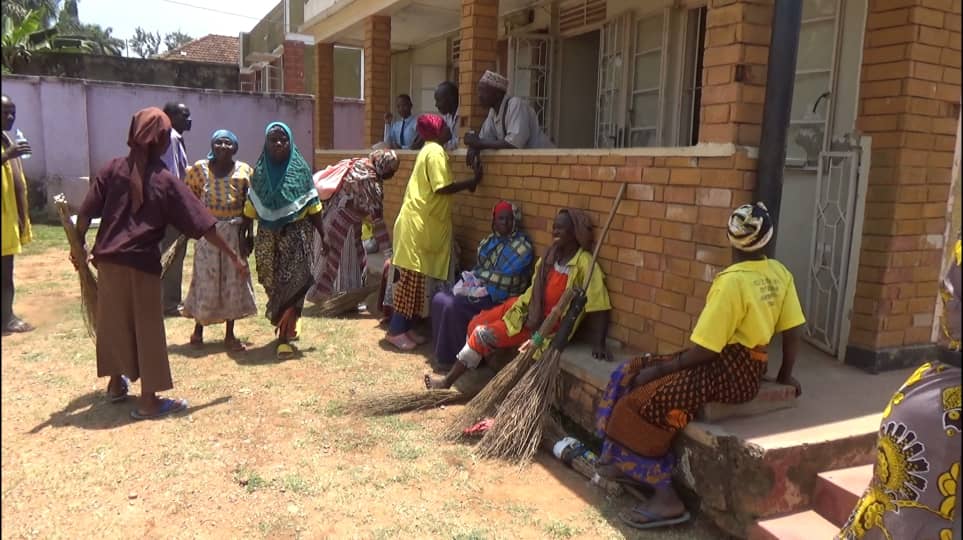 Mbale Industrial Division cleaners protest nonpayment of their wages
Mbale Industrial Division cleaners protest nonpayment of their wages
Sensing that the councillors were not inclined to back down, Masaba made a hasty retreat from his office, slipping away like a shadow in the night. His escape was a testament to the gravity of the situation, a tacit admission of his inability to mitigate the grievances of those he was meant to lead.
As Masaba vanished into the corridors of power, the councillors were left to ponder their next move. Their determination unshaken, they remained resolute in their quest for accountability and transparency. 32 out of 52 councillors swiftly rallied behind a petition aimed at grabbing the attention of higher authorities and anti-graft agencies.
The councillors lament the failure to execute essential projects, such as the installation of solar street lights in respective wards and the renovation of the city abattoir, despite hefty budgets earmarked for them.
This neglect is compounded by the absence of income and expenditure reports, leaving councillors and residents in the dark about financial matters.
Musa Kasaja, the division council speaker, expressed dismay over the division mayor's disregard for council resolutions and his habitual avoidance of council meetings.
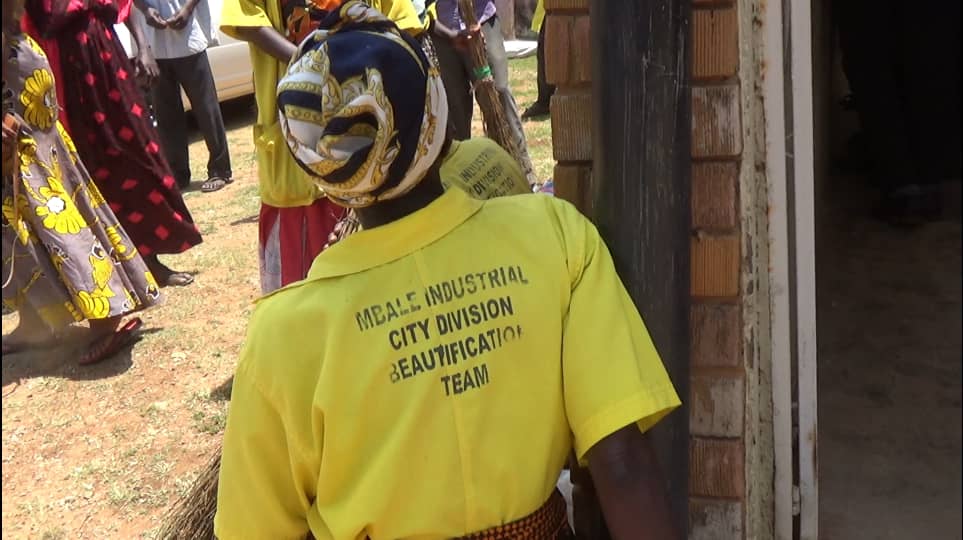
Meanwhile, Simali Anthony, accused Masaba’s administration of incompetence, rampant financial mismanagement and corruption, branding it as a "nonfunctional government incapable of delivering services to the public."
Simali announced plans to mobilize the electorate for peaceful demonstrations, a last-ditch effort to demand accountability and transparency.
Bumutoto Ward Councilor Wandulu Zaidi, who doubles as the Works, Production, and Physical Planning committee chairperson at division, expressed dismay over the significant decline in the division's revenue performance.
Despite its expansion to include five lower local governments upon elevation to city status, revenue has fallen from 5 billion shillings during the municipal status to a mere 1.5 billion shillings.
Female councillor Robina Mukimba Kakai adds her voice to the chorus, highlighting the lack of transparency surrounding council members' emoluments and service delivery gaps.
The councillors express dismay at the neglect and apparent leniency from the mother City council.
By the law, the executive branch of local government in this case headed by the division mayor is subject to scrutiny and oversight by the council.
It is obligated to implement decisions made by the council and is accountable for its actions. This relationship between the executive and the council ensures checks and balances within the local government system, promoting transparency, accountability, and effective governance.
However, "Bichupuli" stands accused of exhibiting a sense of impunity and entitlement, allegedly stemming from his affiliation with the ruling NRM party, where he holds the position of Mbale District Party Chairperson. Critics claim that he has assumed an authoritative role within the city, essentially positioning himself as the ultimate authority.
In an exclusive interview, Kasim Waboga, the outgoing Division Town Clerk, shed light on the allocation of the Urban Development and Decentralization Grant (UDDEG) during the 2023/24 financial year.
A whopping Shs50 million were purportedly spent on the grading and compacting of 18 roads, stretching a total of 14 kilometres. An additional 61 million was spent on titling and physical planning (Shs20m), investment servicing costs (Shs13.5m), LLG assessments (Ushs 17.5m), and budget conferences and monitoring (Shs10 million).
In a satirical twist, the councillors raise objections to the expenditures, alleging sinister deviations from the council's priorities.
They accused the administration of orchestrating a theatrical performance of financial wizardry, particularly the inclusion of ghost road projects and vague expenses, such as titling public facilities a task seemingly more suited to the jurisdiction of the mother City Council.
They scratch their heads in disbelief at the mention of investment servicing costs, LLG assessments and budget conferences and monitoring, likening them to a magic show where funds disappear into thin air.
Amidst the smoke and mirrors, Waboga admitted that delays in procurement procedures had impeded the progress of installing 10 solar street lights, each valued at a princely sum of 10 million shillings with support from UDDEG. He assures us that the procurement process has been completed and delivery is imminent. The outgoing accounting officer spins a tale of halted progress in the renovation of the abattoir, attributing it to the temporary pause in local revenue collection mandated by the Ministry of Local Government for establishing an online business register.
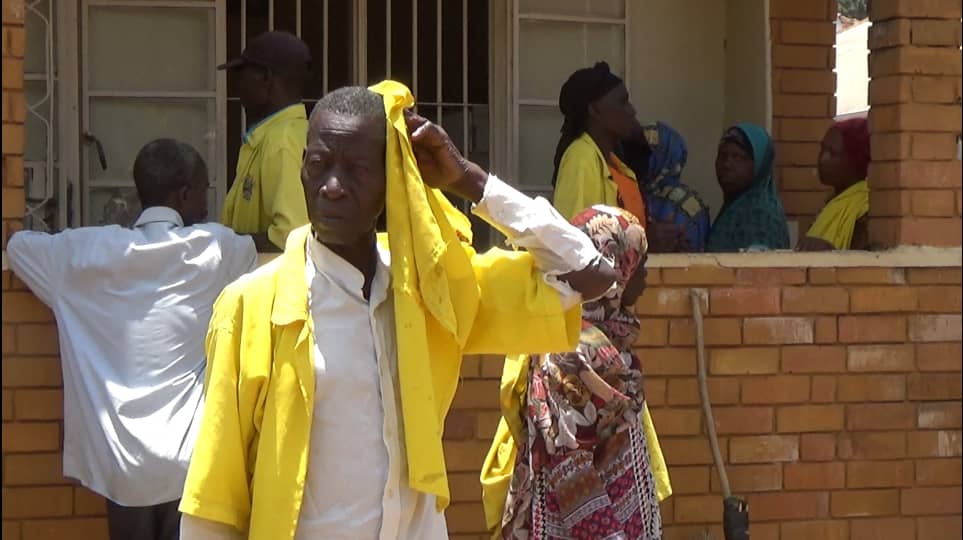
In response to concerns about financial reporting, Waboga acknowledges challenges in submitting revenue reports to the council, partly attributing them to irregular committee meetings.
Council committees are vital components of local government, serving key roles in oversight, policy development, investigation, consultation, and reporting to the council.
They scrutinize operations, develop policies, engage stakeholders, and make recommendations, thereby enhancing transparency, accountability, and governance efficiency.
Ideally, council committees convene regularly, typically on a monthly, bi-monthly, or quarterly basis. However, council committees become redundant in the absence of reports from the executive.
Irregular committee meetings can lead to delays in decision-making, lack of oversight, inefficiency, loss of public trust, and compliance issues.
This can undermine local governance effectiveness and erode community trust in elected representatives. Prioritizing regular meetings is essential for committees to fulfil their responsibilities and serve the public effectively.
On Thursday, March 28, Waboga formally handed over office to the new Division Town Clerk as he transitioned into his new role as the deputy town clerk at the higher city council.
The arrival of fresh leadership brings a sense of optimism, as there is anticipation of positive changes and initiatives aimed at addressing the needs and concerns of the community.
Mbale City plays a crucial role in the economic landscape of eastern Uganda, providing opportunities for business growth and development in various sectors while serving as a vital link for trade and commerce in the region.



